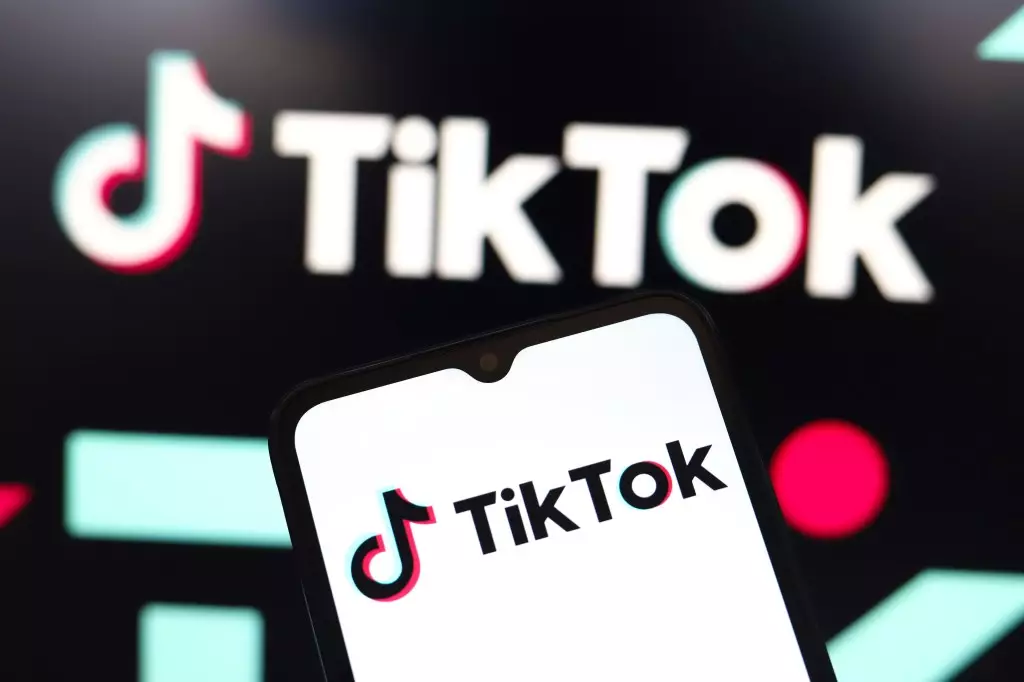TikTok, a cultural phenomenon originating from China, stands at a pivotal crossroads in its expansion within the United States. The platform has captivated millions with short-form videos, yet beneath its playful exterior lies a complex web of geopolitical rivalries and national security concerns. While many see TikTok as merely an entertainment app, governments and policymakers view it through a critical lens—questioning whether the platform poses a threat to data security and sovereignty. With looming legislative threats and international tensions, TikTok’s attempts to evolve into a U.S.-centric platform are not just business decisions but strategic moves within a larger power struggle.
The ambitions of TikTok’s parent company, ByteDance, are now intertwined with the political winds in Washington, D.C. The U.S. government has historically oscillated between threats of outright bans and calls for divestment, motivated by fears of Chinese espionage and data harvesting. The potential sale of TikTok to U.S. investors signals a shift—both as a tactical retreat and as an effort to appease the mounting security concerns. However, this move raises fundamental questions: is this just cost-saving corporate diplomacy, or does it represent a genuine reorientation of TikTok’s core identity?
Moreover, the interplay between U.S. and Chinese relations continues to influence TikTok’s fate. The recent trade tensions, characterized by tariffs and accusations of technological espionage, have significantly impacted negotiations. Despite a fragile truce, the underlying mistrust persists, complicating approval processes. The Chinese government’s stance remains cautious, as any transfer of control might set a precedent for restrictions on Chinese technology firms overseas. Critics argue that the deal, if approved, may still not quell fears of Chinese influence, merely reroute them through U.S. ownership.
The Power of a Platform in Political and Cultural Warfare
TikTok’s rise has orchestrated a new kind of cultural soft power—transforming ordinary users into global influencers and entrepreneurs. Yet, beneath this cultural democratization lurks an undercurrent of political leverage. The platform’s potential reorganization into an American-led entity could serve as a strategic tool for the U.S. to assert technological dominance. It’s not merely about safeguarding data but about shaping the narrative and control of a tool that influences millions.
For the U.S., acquiring or controlling TikTok could mean wielding a significant piece of digital influence. Unlike previous attempts to regulate or ban the platform, a sale to American investors would legitimize TikTok as a domestic enterprise—embedded within the fabric of U.S. innovation and commerce. This move would signal a broader shift in how technology is geopolitically aligned—no longer just a matter of market preferences but a contest of sovereignty and security.
However, such a transition risks fragmenting TikTok’s global appeal and user trust. Loyal users worldwide might perceive the platform’s transformation as a commodification or political maneuver rather than a genuine commitment to free expression. For TikTok, balancing the interests of U.S. regulators, international users, and corporate ambitions will require finesse—without alienating its core user base.
Is the Future of TikTok Really in U.S. Hands?
The upcoming development of a new platform tailored explicitly for U.S. users signifies an ambitious attempt to escape the constraints that have shadowed TikTok’s global identity. Launching a dedicated U.S. version ahead of the legal deadline represents a strategic bid to maintain market share and avoid shutdowns, but it also symbolizes an existential shift. Will this be enough to satisfy regulators and political skeptics? Or will it serve as a stepping stone towards full ownership transfer or even a technological decoupling?
High-profile figures in government have publicly supported measures ensuring TikTok’s continuity in America, often framing the platform as an essential tool for drivers of economic and cultural engagement. Yet, skepticism remains. Critics question whether such a move truly addresses national security fears or simply appeases political pressure while preserving corporate profits.
In essence, TikTok’s saga exemplifies how technology companies function not just as commercial entities but as actors in a geopolitical theater. Their operations are subject to the ebb and flow of international relations, elections, and security debates. As the platform prepares for its future in the U.S., the underlying question remains: will it be allowed to evolve freely, or will it always be caught in the crossfire of diplomatic conflict and bureaucratic control?
In this hyper-connected age, TikTok’s destiny will inevitably reflect a broader narrative about how nations dictate the flow of information, influence culture, and wield power in the digital realm. The platform’s next chapter promises to be a telling barometer of the ongoing struggle for dominance in the global technology landscape.
